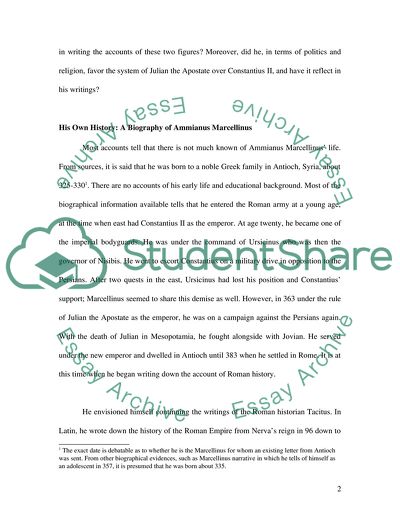Cite this document
(“Julian the Apostate, Constantius II by Ammianus Marcellinus Essay”, n.d.)
Julian the Apostate, Constantius II by Ammianus Marcellinus Essay. Retrieved from https://studentshare.org/history/1546054-ammianus-marcellinus-is-a-history-writer
Julian the Apostate, Constantius II by Ammianus Marcellinus Essay. Retrieved from https://studentshare.org/history/1546054-ammianus-marcellinus-is-a-history-writer
(Julian the Apostate, Constantius II by Ammianus Marcellinus Essay)
Julian the Apostate, Constantius II by Ammianus Marcellinus Essay. https://studentshare.org/history/1546054-ammianus-marcellinus-is-a-history-writer.
Julian the Apostate, Constantius II by Ammianus Marcellinus Essay. https://studentshare.org/history/1546054-ammianus-marcellinus-is-a-history-writer.
“Julian the Apostate, Constantius II by Ammianus Marcellinus Essay”, n.d. https://studentshare.org/history/1546054-ammianus-marcellinus-is-a-history-writer.


